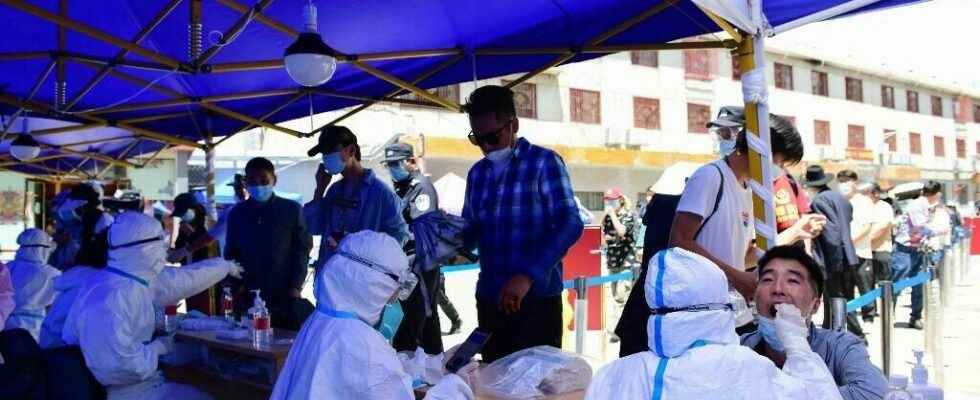According to official figures, nine new Covid cases and 95 asymptomatic cases were reported in Tibet on Friday. On social networks, some Internet users say they have been confined for almost two months and lack food.
With our correspondent in Beijing, Stephane Lagarde
Customers running in the shelves of Cotsco and Ikea in Shanghai because of a suspicion of a Covid case inside the store… A positive case or even a contact case and you risk being stuck inside the stores by the health brigades. These images have been making the rounds on social networks in recent days in China, because the scene is happening in the Chinese economic capital.
Costco Shanghai got locked down yesterday and once again there are videos of people trying to run out before authorities can lock them inside for 48h. pic.twitter.com/ztq37WpQFH
— Christian Petersen-Clausen (@chris__pc) September 16, 2022
chaotic situation
For the regions of the great west, the song of “zero Covid” is the same, except that we do not hear it or little. The confined people of Lhasa know something about it. The first local cases were identified on August 8, according to testimonies noted by the WhatsOnWeibo website. Since then, some residents of the capital of the Tibetan Autonomous Region say they have been in solitary confinement for 42 days. Images of buses transporting residents to quarantine centers have notably circulated on Twitter – a censored network in China –, with problems reported elsewhere in similar circumstances, in particular during the very long confinement of Shanghai last spring.
The witnesses speak of a chaotic situation: The last time I managed to buy food was a month and a half ago, says a resident of Lhasato South China Morning Post. Now I only have a few potatoes, onions and rice left. Others say they do not understand why the situation persists, with new cases of infections occurring while no one leaves their homes. The confined people of Tibet are afraid of being forgotten.
Similar testimonies were heard recently in Yining, Xinjiang.after weeks of silence, due to even more aggressive media censorship in those regions considered politically sensitive by the authorities.
